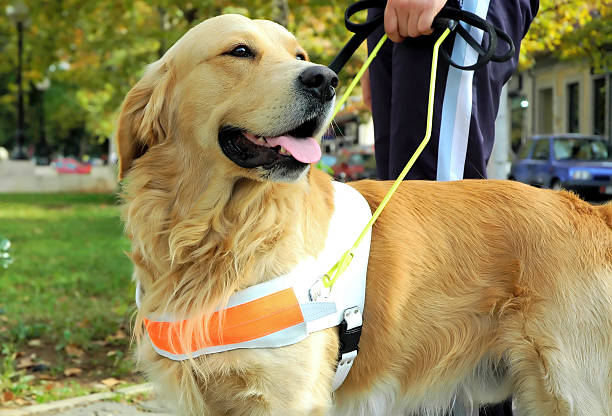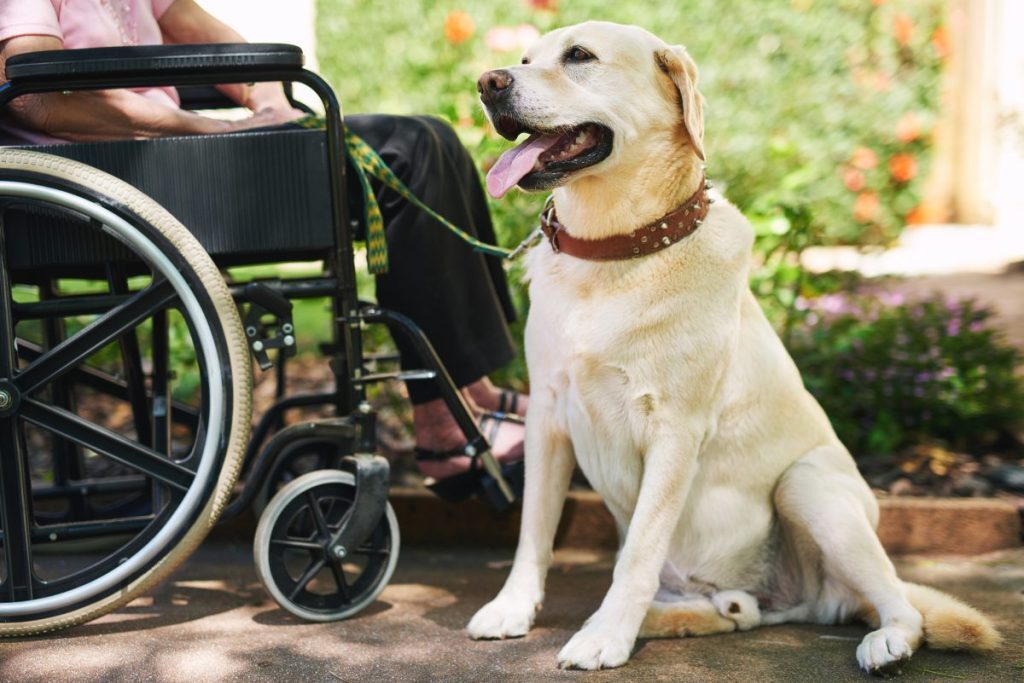In 24 cities

Service Dogs: The Unsung Heroes of Humanity
|
|
Time to read 7 min
Get product availability and delivery timelines based on your location.
Are you sure you want to delete this address?
Help us ensure a smooth delivery
Help us ensure a smooth delivery
SIZE GUIDE
|
|
Time to read 7 min
In the realm of pets and pet parenting, you might have come across the term "service dogs" and were not familiar with its meaning. Worry not, we are here with a fresh new blog to quench your curiosity about service animals.
Service dogs are crucial for people who need help because of physical or emotional challenges. These well-trained dogs are more than just animals; they are devoted companions who offer priceless help and assistance to their handlers. In this blog, we will delve deep into the world of service dogs, exploring their significance, training, and the lasting impact they have on the lives they touch.
To understand the profound impact of service dogs, it's crucial to first understand their role in the lives of those who rely on them. These dogs are not your typical household pets; they are carefully selected and trained to perform specific tasks and offer firm emotional support.
Service dogs can be different breeds, selected for their abilities and personality. They undergo rigorous training to become the best therapy dogs, assistance dogs, or emotional support animals possible. This training equips them with the skills needed to assist individuals with disabilities or mental health conditions, making them true heroes in the field of animal therapy.
Service dogs also known as assistance dogs are thoroughly trained dogs to perform specific tasks and provide practical support to people with disabilities. These highly trained animals are not limited to a single type of assistance; instead, they are classified into different categories based on the unique roles they fulfill.
Service dogs come in various breeds, each chosen for their unique abilities and temperament. They undergo rigorous training to become the best therapy dogs, assistance dogs, or emotional support animals possible. This training equips them with the skills needed to assist individuals with disabilities or mental health conditions.
The selection of the right breed is crucial to ensure that the dog's temperament and abilities align with the intended role.
Common breeds include Labradors, Golden Retrievers, German Shepherds, and Poodles, among others.
Service dogs offer invaluable support to a diverse range of individuals facing physical disabilities, medical conditions, or emotional challenges. These dedicated animals can transform the lives of individuals with conditions such as blindness, deafness, mobility limitations, epilepsy, diabetes, post-traumatic stress disorder (PTSD), anxiety disorders, autism, and more.
Puppy Selection and Evaluation: The journey of a service dog begins with careful selection. Certain dog breeds are better suited for service work because of their temperament, intelligence, and trainability. These puppies undergo rigorous evaluations to ensure they have the right qualities.
Basic Obedience Training: Like any well-behaved pet dog, service dogs start with basic obedience training. This includes commands like sit, stay, and come, which provide a foundation for more advanced tasks.
Specialized Task Training: What sets service dogs apart is their ability to perform specialized tasks. Depending on their handler's needs, they can be trained to perform tasks like retrieving medication, guiding individuals with visual impairments, or alerting to medical emergencies.
Socialization and Public Access Training: Socialization is key to ensuring service dogs remain calm and composed in public spaces. They are exposed to various environments, people, and situations during their training. Public access training teaches them how to behave impeccably in public places.
Emotional Support and Companionship: Service dogs offer unwavering emotional support and companionship to their handlers. They provide a constant source of comfort, which can be particularly beneficial for individuals dealing with mental health challenges.
Increased Independence and Mobility: For those with mobility issues, service dogs are vital. They can assist with tasks such as opening doors, picking up dropped items, and even helping their handlers maintain balance while walking.
The journey to having a service dog starts with understanding if you are capable of keeping an assistance dog. Service dogs or assistance dogs are provided to people with disabilities that affect their daily lives. These disabilities can be physical, sensory, psychiatric, or intellectual in nature.
Finding Reputable Service Dog Organizations: To ensure you receive a well-trained and reliable service dog, it's crucial to find reputable service dog organisations. Research and seek recommendations to identify organisations that adhere to high training standards and ethical practices.
Application and Assessment:Once you've identified a suitable organization, you'll need to complete an application process. This often involves providing details about your disability, living situation, and specific needs. After the initial application, you'll likely undergo assessments to determine your rapport with a service dog.
While service dogs are often provided at no cost or a nominal fee by reputable organizations, people having service dogs must be prepared for the financial commitment that comes with caring for these animals. This includes covering their daily expenses, such as dog food, grooming needs, and veterinary care.
Service dogs require consistent care and training reinforcement. Parents must be dedicated to maintaining their dog's health and ensuring they follow commands effectively. Regular exercise and mental stimulation are essential for a service dog's well-being.
In India, service or assistance dog laws are evolving. There's no dedicated law for service animals, but some rules protect people with disabilities and their service dogs:
Rights of Persons with Disabilities Act, 2016: This law recognizes disability rights. It allows service dogs in public places and transport. Discrimination against them is illegal.
Indian Railways: Passengers with disabilities can travel with service dogs for free. Dogs can be in the passenger area.
Air Travel: DGCA permits service dogs in the cabin. Airlines must make arrangements.
Public Places: There is no specific law regarding the allowance of service dogs in public spaces in India, however, the Disabilities Act lets them enter.
In the realm of assistance animals, it's important to differentiate between service dogs and emotional support animals (ESAs). These two types of assistance animals provide vital support to people with unique needs, but they have different roles, training requirements, and legal implications.
Service or therapy dogs are specially trained to perform specific tasks that assist individuals with disabilities. These tasks can vary widely, from guiding individuals with visual impairments to alerting those with hearing loss to providing mobility assistance for individuals with physical disabilities.
Emotional support dogs, on the other hand, provide emotional comfort and companionship to individuals with mental health conditions. They are not trained to perform specific tasks but instead offer comfort and relieving of symptoms through their presence.
Choosing between an assistance dog and an emotional support dog depends on the person's needs and the nature of their disability. Here are some factors to consider:
Nature of the Disability: If a person has a physical disability that requires specific tasks to be performed, a support dog may be the best choice. Conversely, if someone is dealing with a mental health condition like anxiety or depression, an ESA may provide the emotional support they need.
Training: Support dogs undergo extensive training to perform their tasks, while ESAs do not require specialized training. However, ESAs should have basic obedience training to ensure they behave properly in various settings.
In conclusion, as we navigate the intricate world of assistance dogs, therapy pets, and emotional support animals, let us extend our support to the organizations that tirelessly work to train and provide these incredible animals to those in need.
By championing responsible parenting and backing these service dog organizations, we contribute to a more compassionate and inclusive world where the remarkable bond between humans and their canine companions continues to thrive.
2 item in cart
₹10,360



